What Is Geoblocking & How To Bypass It? A Detailed Guide

Urfa Sarmad
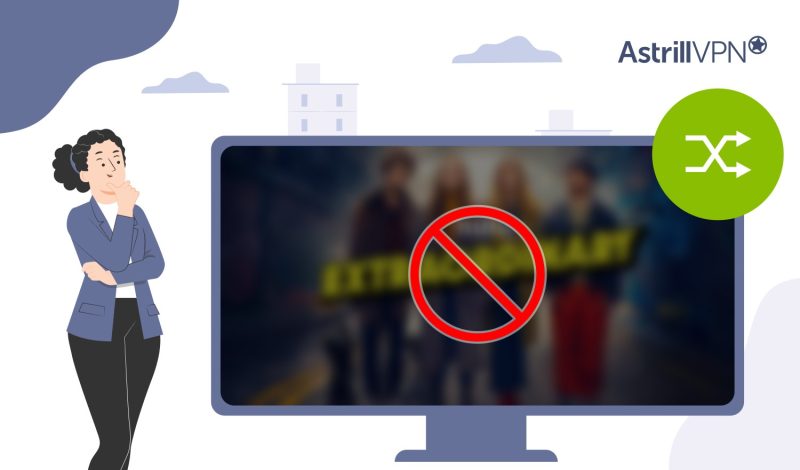
You must have tried accessing a streaming service, like Max or Hulu, to catch up on a TV show or movie that piques your interest. Still, you’re instantly disappointed when you discover these streaming services aren’t available in your region. This is what is referred to as Geoblocking. Geo-restriction happens when certain content, websites, or streaming services aren’t available in your region. While this can be a source of annoyance, there are ways through which you can bypass geo-location restrictions and quickly gain access to all of the content that you desire.
If you want to gain more insights into geo-blocking, how it works, why geoblocking happens in the first place, and why governments implement these restrictions, then this is the perfect guide. We will walk you through the ins and outs of geoblocking and some of the most effective strategies to bypass these restrictions and enjoy unlimited content. So, without further ado, let’s get into geoblocking in this detailed guide packed with valuable information.
Table of Contents
What Is Geoblocking & How Does It Work?
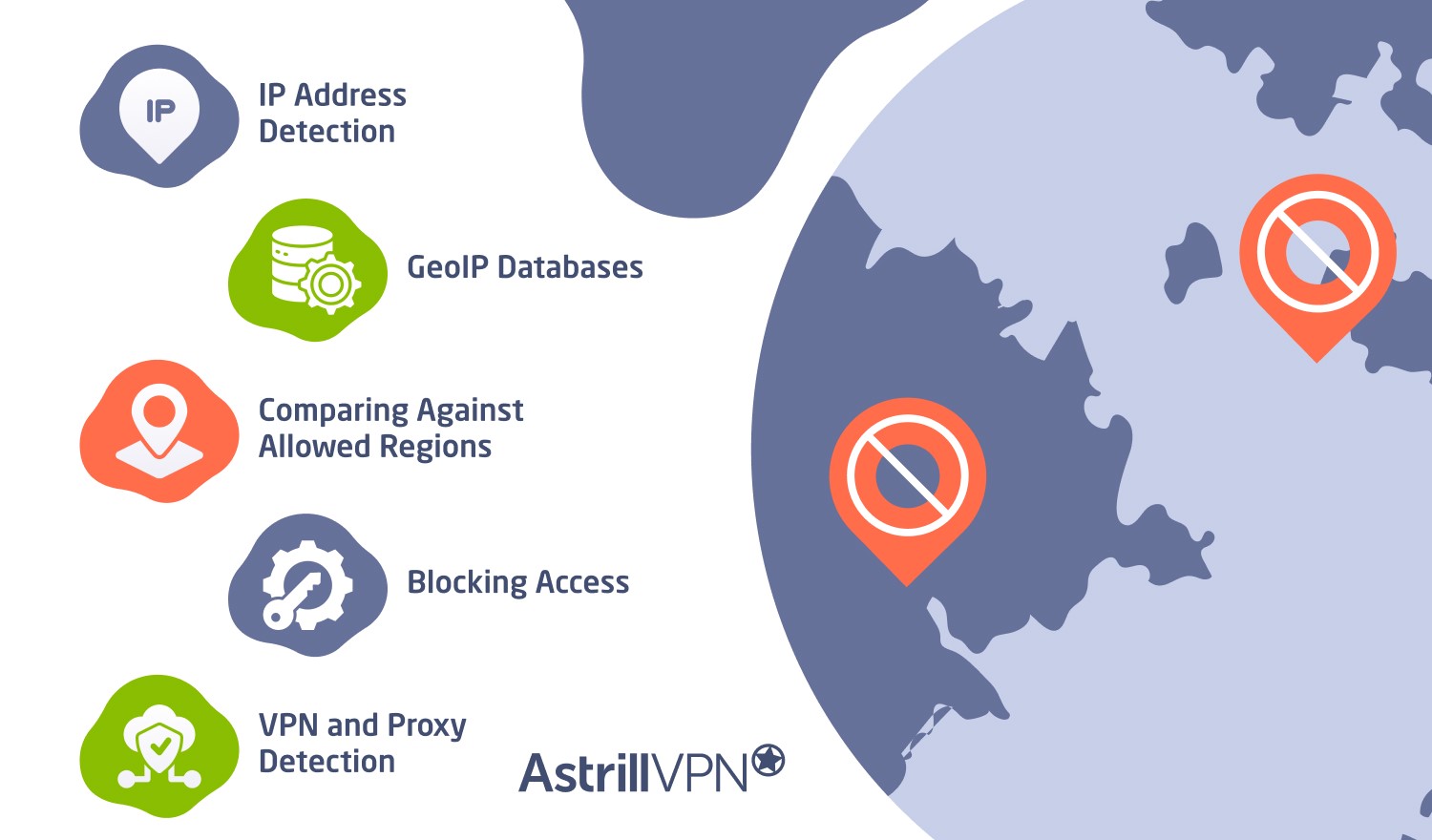
Geo-blocking restricts access to content based on the user’s geographical location. It determines the user’s location through different means, such as their IP address, GPS data, or additional information your ISP provides (Internet Service Provider). Geoblocking is often implemented due to copyright laws, licensing agreements, and commercial considerations.
Geoblocking relies on your IP address to find information about your location.
Your IP address gives away your approximate location, such as your city and country of residence. For IP blocking, knowing your country is good enough. You cannot avoid showing your IP address when you’re trying to access a streaming service or a website since they have to know where to return the data that you’ve requested. So, if the streaming service is only available in the UK, and the streaming service sees a request coming from India, you’ll be shown the “not available in your region” message. Here’s how geoblocking typically works:
Start Protecting Your Privacy...
GET AstrillVPN1) IP Address Detection
Every device connected to the internet is assigned a unique numerical label called the IP (Internet Protocol) address. The address helps websites and streaming services identify the device’s location online. The server can see your IP address when you connect to a website or streaming service.
2) GeoIP Databases
Companies keep databases that map IP addresses to specific geographical locations. The databases contain information about the particular IP addresses associated with which countries, cities, or regions.
3) Comparing Against Allowed Regions
When trying to access a website or an online service, the server will check your IP address against a list of allowed regions and countries. You can access a website or streaming service if your IP address matches the permitted region. However, your access will be restricted if it doesn’t match the allowed regions.
4) Blocking Access
The website or online service will only allow access if your IP address matches the allowed regions. This denial can take various forms, including displaying a message that the service is unavailable in your area or redirecting you to a different page.
5) VPN and Proxy Detection
Some companies use different tactics and strategies to determine whether users use a VPN (Virtual Private Network) or proxy services to hide their IP address and bypass geoblocking. If these methods are detected, then access can be denied. However, we will discuss how a premium VPN can help you avoid getting detected and gain uninterrupted access to your favorite streaming services.
What Is Geofencing and Does it Differentiate from Geoblocking?
While Geoblocking restricts access to content based on your geographical location, geofencing is a slightly different concept. Geofencing is a type of location-based marketing and advertising. It’s a location-based service that uses apps and other software programs that use Radio Frequency Identification (RFDI), GPS, cellular data, or WiFi to initiate a marketing action when a mobile device or RFID tag enters or exits a virtual geographic boundary, which is known as a geofence.
A basic example of using geofencing in marketing is when someone walks to a McDonald’s at the Mall and receives an app notification that says, “Get a free Chicken McBurger with the purchase of one item from McCafe. Deal for today only!” Here are some of the main benefits of Geofencing:
1) Better Targeting
Geofencing allows you to engage your target audience better. You’ll also be able to reach them at the right time and place and engage them with timely and relevant marketing messages. It allows companies to target customers with relevant advertisements, promotions, and notifications based on their approximate location.
2) Enhanced Customer Engagement
Geofencing allows companies to engage with customers based on location while offering personalized information and experiences. This also leads to enhanced customer satisfaction and loyalty. Companies can enhance customer engagement and work towards building more tailored experiences that resonate with the audience.
3) Improved Operational Efficiency
Geofencing helps companies optimize their operations by tracking assets, vehicles, or personnel within the designated geographical areas. This helps streamline logistics and enhances the overall efficiency.
4) Enhanced Security
Geofencing also monitors and controls access to sensitive areas and assets for security purposes. For instance, companies can set up virtual perimeters around their facilities and receive alerts when unauthorized personnel enter the restricted zones.
5) Geographically Relevant Content
Companies and content providers use geofencing to deliver location-specific content or services to users. For example, news agencies can provide local news updates based on the user’s current location, which can help provide more relevant content to their audience.
6) Event Management
Geofencing is particularly useful for managing events and gatherings by defining virtual boundaries and sending notifications or instructions based on the location within the event venue. The organizers can improve crowd control, manage traffic flow, and enhance the event experience.
Why Is Specific Content Geoblocked By Governments?
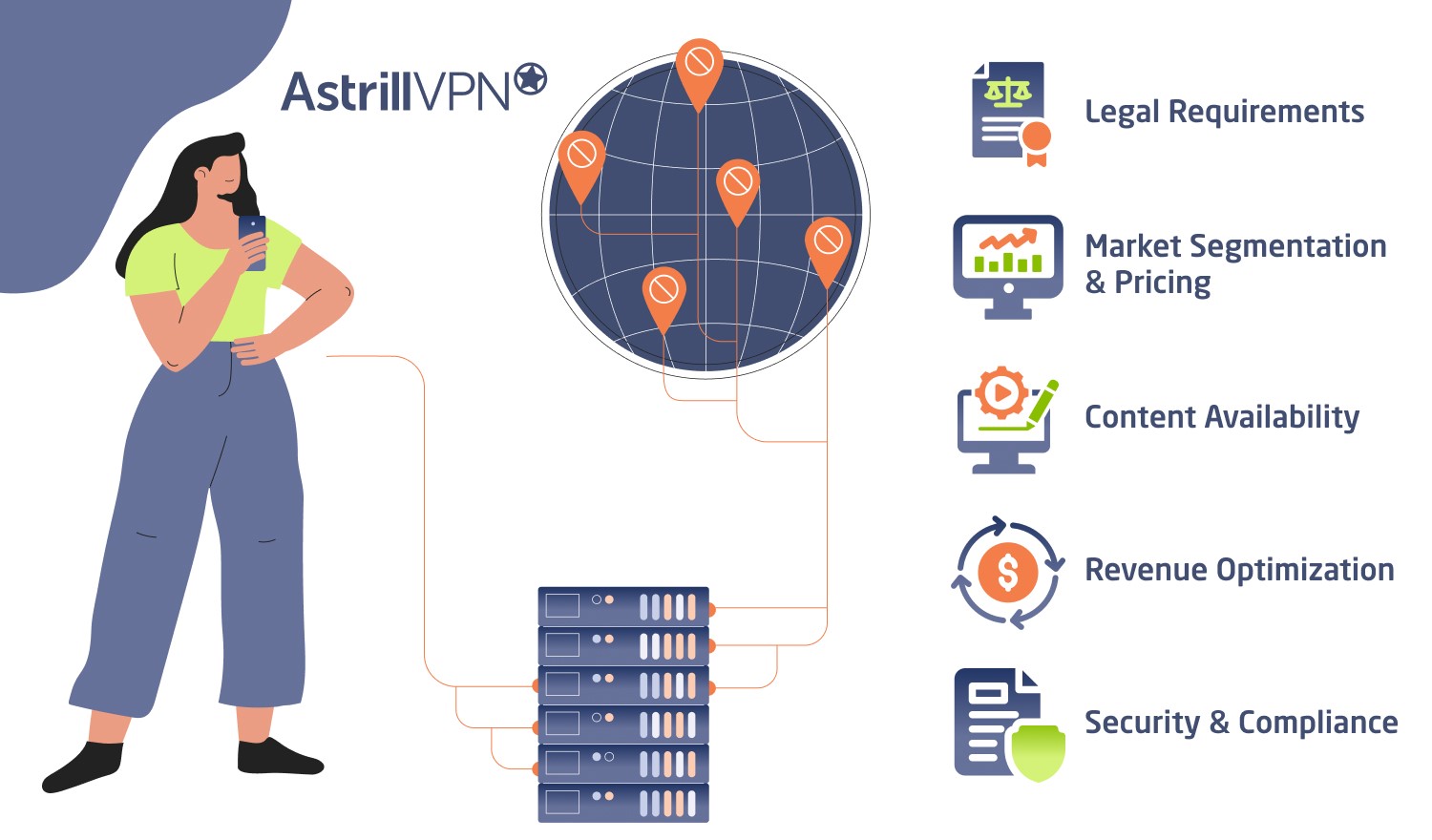
There are various reasons why certain content, websites, or streaming services get geo-blocked by governments. Some of the significant reasons for geo-restricted content include the following:
1) Legal Requirements
Content providers have licensing agreements restricting content distribution to specific regions or countries. Geoblocking allows them to comply with these agreements and avoid legal issues related to copyright infringement or breach of contract.
2) Market Segmentation & Pricing
Companies can use geoblocking to segment markets and apply different pricing strategies based on geographical regions. This allows companies to adapt their product pricing strategies to the local economy, customer preferences, and market competition.
3) Content Availability
The content availability can depend on different factors such as distribution rights, censorship laws, and cultural sensitivities. Geoblocking allows content providers to control where it is accessible and ensures that it aligns with local regulations and cultural norms.
4) Revenue Optimization
Geblocking enhances revenue by limiting access to content in specific regions. For example, content providers can prioritize licensing agreements with high-value markets while restricting access to regions with lower revenue potential.
5) Security & Compliance
Geoblocking can also be implemented for security and compliance reasons, like restricting access to sensitive information and complying with regulatory requirements for data protection and privacy.
What Are Some of the Important Laws Regarding Geoblocking?
Various interesting geoblocking regulations have been implemented regarding geo-blocking. For example, the European Commission ended unjustified geo-blocking rules, undermining online shopping and cross-border sales in the EU (European Commission). They define unjustified geoblocking as discrimination between EU customers to segment markets through national borders and increase profits, which disadvantages foreign customers.
The geoblocking regulations detail three specific situations of unjustified geo-blocking:
- The sale of goods without physical delivery.
- The sale of electronically supplied services.
- The sale of services provided in a specific physical location.
The regulation was part of an e-commerce package with a legislative proposal on cross-border parcel delivery services and a proposal to offer more consumer rights. Within two years after these rules came into force, the Commission had to evaluate the impact on the internal market. They also included an assessment of the scope of the rules.
However, recently, The European Parliament voted to re-assess the EU’s rules on geoblocking but will hold off implementing any bans on geo-blocking when it comes to the audiovisual sector. On December 14th, 2023, MEPs voted to adopt a report that seeks to update the EU’s 2018 Geo-blocking regulation, which restricts unjustified geographical restrictions on selling goods and services with the EU but exempts film and TV. Most MEPs voted to insert amendments into the report to keep the exception for film and TV.
Over 600 film and TV companies from across Europe banded together to sign a joint letter that urged the European Parliament to oppose moves to ban geo-blocking through audiovisual services across the US. Geoblocking is crucial for the functioning of the film, TV production, and distribution markets in Europe, which allows titles to be exploited on a territory-by-territory basis.
What Are Some Of The Most Popular Geoblocked Platforms?
We will now deeply dive into some of the popular Geoblocked platforms. In the later sections, we’ll discuss how to bypass these restrictions in detail. Some of the most popular geo-blocked platforms include:
- Streaming services like Netflix, Max, Hulu, Amazon Prime and BBC iPlayer. Most streaming services are regionally restricted due to copyright and licensing agreements.
- Social media platforms like Facebook, Twitter, and Instagram in censorship-heavy countries like China, Iran, and North Korea.
- Messaging services like WhatsApp and Telegram.
- Sports streaming websites like ESPN, beIN Sports, and Sportsnet are geo-blocked due to broadcasting rights and restrictions, so foreign content gets regionally restricted.
- Popular News Websites like the Washington Post, The Guardian, and NYTimes aren’t accessible in all countries.
- Music streaming apps like Spotify prevent users from some countries from gaining access to their music catalog and podcasts.
- Governments also use geoblocking to limit access to adult websites.
Is It Legal To Bypass Geoblocking?
Most countries don’t have any specific laws when it comes to bypassing geolocation restrictions. Most people use a VPN (Virtual Private Network) to bypass geolocation restrictions and gain access to restricted content. VPN is impossible since it’s a legitimate privacy tool with multiple purposes, including censoring content. However, using a VPN to bypass geo-restricted content may become a problem if the VPN is illegal in your country.
If you use a VPN to evade censorship or geolocation restrictions, you could violate a streaming service’s user agreement, leading your account to get terminated or suspended. These are just some aspects to consider, but for the most part, you can easily bypass geolocation restrictions using a VPN and other methods without any significant legal issues.
How To Bypass Geoblocking With A VPN?
A VPN (Virtual Private Network) masks your IP address and encrypts your internet traffic, keeping your data safe and secure from outside intrusion. So, how to bypass geo-blocking with VPN? VPNs are the perfect tools to watch geo-blocked streaming services and other content from the comfort of your home country since you can connect to a VPN server where online services and streaming platforms are available.
The key here is to opt for a premium VPN provider that allows you to bypass these restrictions and access your favorite streaming services in no time. It also has top-notch security features to help take your privacy and security to the next level.
Why You Need AstrillVPN
AstrillVPN is your go-to VPN provider that offers extensive servers and excellent security features to have a seamless and uninterrupted streaming experience without worrying about geolocation restrictions. You need AstrillVPN to gain continuous access to your favorite TV shows and movies and to ensure that your privacy and security needs are covered online. There are other reasons why it’s the perfect tool to help you access geo-blocked content:
Excellent Security Features
AstrillVPN has many excellent security features ranging from a Kill Switch feature to a Smart Mode feature. A Smart Mode feature is handy when using a VPN to access a geo-blocked platform. Since you’ll be assigned a regional IP address instead of a foreign IP address, ISPs, and government agencies will have a more challenging time detecting that you’re using a VPN.
Strict No-Logs Policy
AstrillVPN also has a strict No Logs Policy, meaning it does not record your data or store any of your information when using the VPN provider. All your data will automatically get deleted when you log out of the VPN. It also offers robust VPN protocols like OpenVPN, Wireguard, and AES-256 Encryption to ensure that your private and confidential data is not intercepted or deciphered by advertisers, ISPs, malicious actors, and other third parties. With that being said, here’s how you can use AstrillVPN to bypass geolocation restrictions:
- Download and install AstrillVPN. You can do it directly from the website.
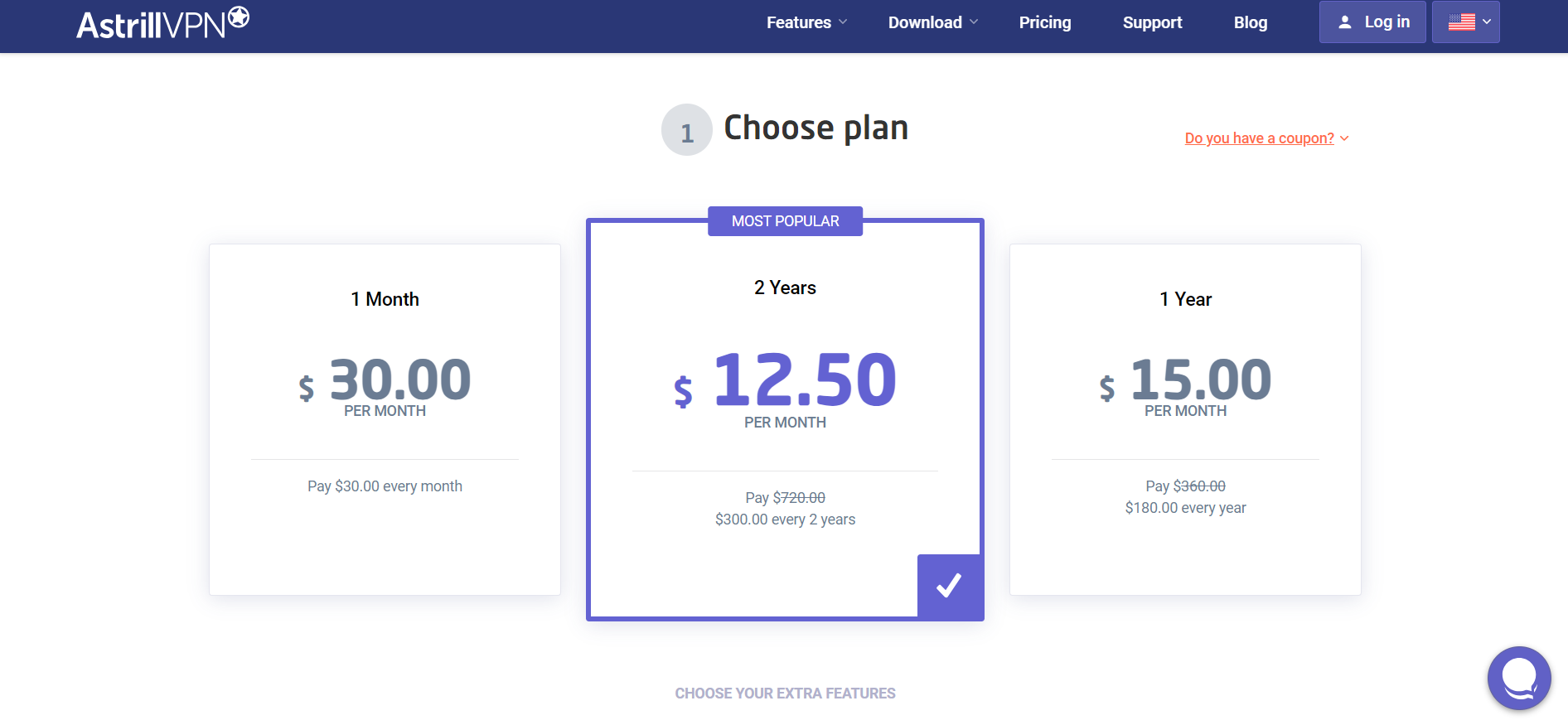
- You can then download it by choosing the link of your operating system.
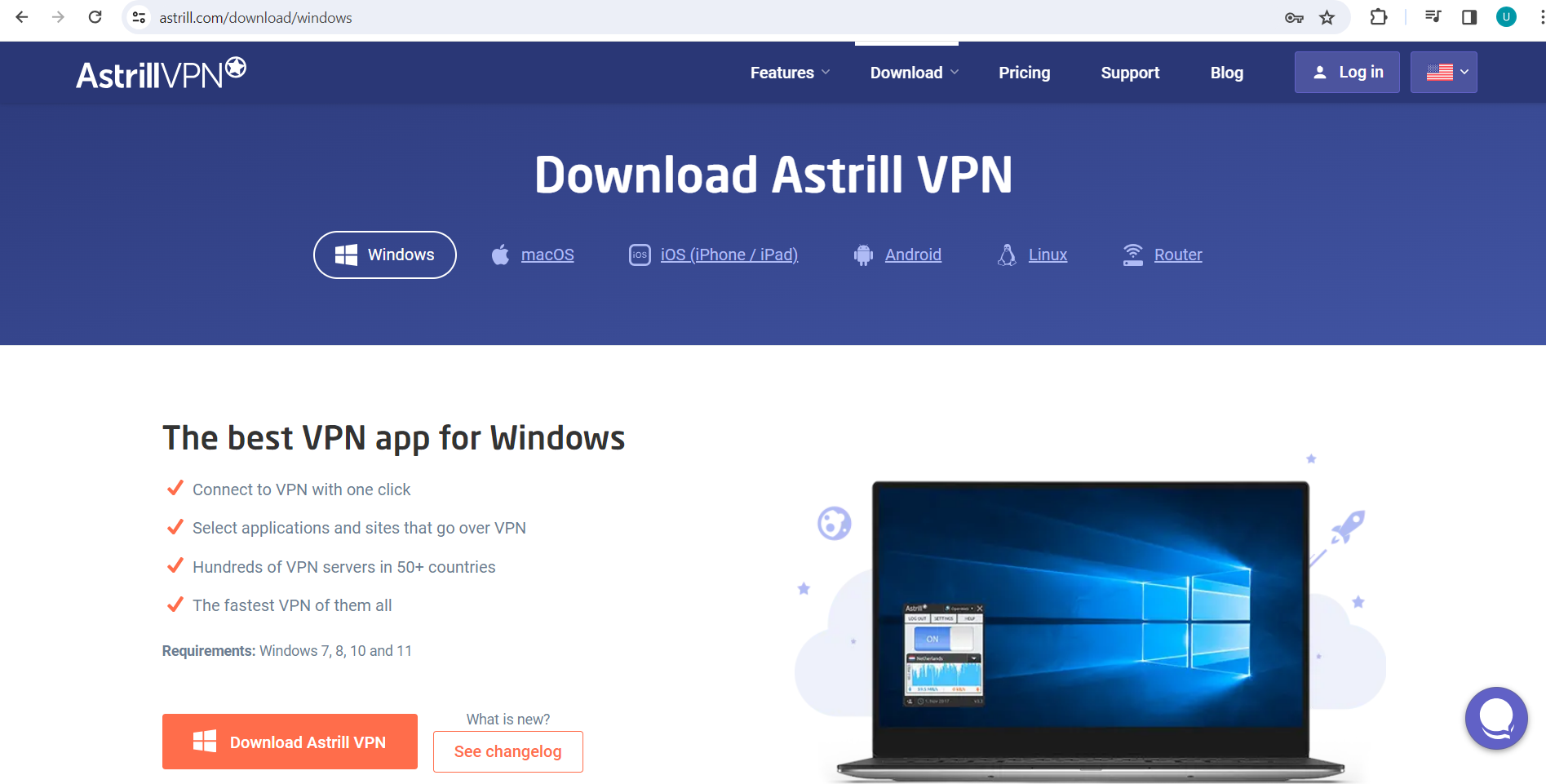
- Register for your account and sign up.
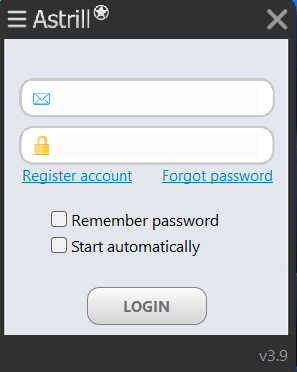
- Once you have your login credentials, choose a server location where these geo-blocked platforms and websites are available.
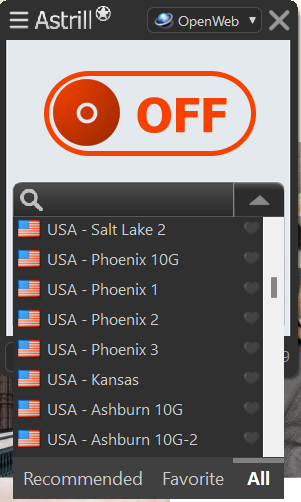
- You can also choose a VPN protocol that fits your needs and preferences.
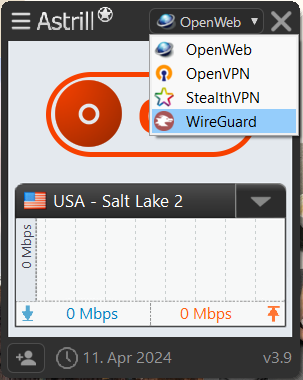
- Turn on the VPN connection and enjoy an uninterrupted streaming experience without worrying about geolocation restrictions.
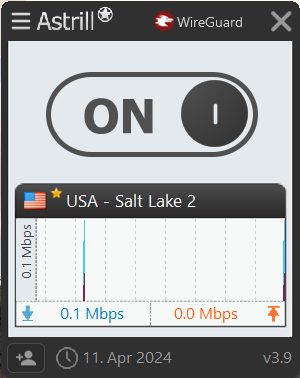
Access the Web Without Borders – Get AstrillVPN
Should I Use A Free VPN To Bypass Geoblocks?
While a free VPN can seem appealing, you must compromise your privacy if you choose that route. Since free VPNs can’t earn revenue like a premium VPN service, they get this money by selling your personal and confidential data to third parties to make a profit.
Free VPNs also have a limited range of servers, which are the most overcrowded and overloaded with users. This makes it difficult for you to gain access to your favorite streaming services, and even if you do, you would constantly experience disruptions and buffering issues since the speed and performance of a free VPN would not be up to par.
Using a free VPN doesn’t necessarily hide your IP address; even if it does, it could still be detected by your ISP and government agencies. Free VPNs can also lack robust security features, leaving sensitive and confidential data vulnerable and susceptible to hacking. Some free VPNs can also have Malware and other malicious software, so we strongly advise against using a free VPN.
How To Bypass Geoblocking Without A VPN?
You may think a VPN is the only viable way to bypass restrictions, but that’s not true. There are various other methods that you can implement to bypass regional restrictions without having to use a VPN. Let’s go over some of the significant ways how to bypass geo-blocking without VPN. These include:
1) Use a Proxy Server
A proxy server acts as an intermediary between your device and the internet. It forwards your requests to other servers on the internet and then returns the responses to you. You can use a proxy server to bypass geolocation restrictions, but before doing so, it’s a good idea to look into its benefits and drawbacks.
Pros of Using a Proxy Server
- Proxy servers offer anonymity by masking your IP address. This prevents websites from tracking your online activities.
- Proxy servers filter web content to block malicious websites and inappropriate content that violates a company’s policies.
- Using a proxy server enhances performance by caching frequently accessed web content. This reduces the time needed to load web pages and helps conserve bandwidth.
- Proxy servers spoof your location by routing your internet traffic through servers in different countries and regions. This allows you to access the geo-restricted content in your region.
Cons of Using a Proxy Server
- Proxy servers can create security risks if they’re not properly configured. They can intercept your internet traffic and expose your sensitive and confidential information.
- Using proxy servers can sometimes lead to slower internet speed, mainly if the server is overloaded and far away from your location. This can affect your streaming experience and make it less enjoyable.
- Proxy servers can experience downtime and connectivity issues, mainly if unreliable providers operate them.
- Proxy servers have limited functionality as compared to VPNs.
2) Use SmartDNS
SmartDNS is also another alternative that you can use to bypass geolocation restrictions. SmartDNS (Domain Name System) is a technology that bypasses geolocation restrictions by redirecting specific internet traffic related to DNS queries. Here’s the pros and cons of using SmartDNS to evade regional restrictions:
Pros of SmartDNS
- SmartDNS doesn’t route all your internet traffic through a remote server, so you can experience faster speed since your connection isn’t encrypted and routed through a distant server.
- Setting up SmartDNS is easy to do and doesn’t require any additional software or configuring complex settings.
- SmartDNS is compatible with various devices, including smartphones, tablets, Smart TVs, gaming consoles, and streaming devices.
- Only specific DNS queries get redirected through the Smart DNS service, so your access to local websites does not get affected.
Cons of SmartDNS
- SmartDNS also has limited functionality beyond allowing users to bypass geolocation restrictions.
- SmartDNS doesn’t encrypt your internet traffic, so your data isn’t protected from interception and surveillance.
- Changes to the DNS settings can take time to propagate across the internet, leading to delays in accessing geo-restricted content after configuring SmartDNS.
3) Use The Tor Browser
The Tor Browser is specifically designed for anonymity and privacy. It lets users browse the internet privately by routing their internet traffic through a network of volunteer-operated servers known as Tor nodes. Here are some benefits and drawbacks of using the Tor browser:
Pros of The Tor Browser
- The Tor browser allows you to bypass internet censorship and access websites blocked in your region.
- The Tor browser encrypts your traffic through multiple encrypted nodes, making it challenging for anyone to trace your online activities to your IP address.
- Tor prevents websites and services from tracking your online activities and collecting confidential data.
- The Tor browser encrypts your internet traffic, which protects it from surveillance and interception by third parties like malicious actors and government agencies.
- The Tor network has a global network of volunteers who operate and maintain it, ensuring its continued availability.
Cons of The Tor Browser
- Since the Tor browser routes internet traffic through multiple nodes, the browsing speed is slow compared to regular browsing.
- Tor can have difficulty loading certain types of content, including streaming videos or interactive web applications, because of its focus on privacy and security.
- Although Tor offers enhanced privacy and security, it may not be suitable for all online activities.
- Although the Tor network has been designed to provide anonymity, some malicious actors can operate rogue notes and intercept and manipulate traffic.
- Some websites and online traffic can flag or restrict access from Tor exit nodes because of security or abuse concerns. This can cause inconvenience for Tor users who are trying to access these websites.
Wrapping Up
Geoblocking is not going away anytime soon. While we can understand the frustration of someone who wants to gain access to their favorite streaming services and all the fantastic and diverse content they offer, not all hope is lost. While Geoblocking has valid reasons, there are various ways to bypass geo blocking and gain access to geo-blocked services and content quickly. In this detailed guide, we’ve covered all of these, including using a VPN, so you’ll never have to worry about regional restrictions stopping you from accessing geo-blocked streaming services and content ever again.
Frequently Asked Questions (FAQs)
YouTube videos are geo-restricted because of licensing agreements and copyright laws that content creators and distributors must follow. These laws and agreements vary from different countries.
Netflix is available in 190 countries around the world. The content that you get shown on Netflix depends on the location that you’re in. The country on your account can’t be changed unless you move to a new location.
DNS can bypass geolocation restrictions and access content unavailable in a particular region.
Bypassing geolocation restrictions is not illegal unless the method that you’re using is illegal in your country.
A free VPN is not ideal for bypassing geolocation restrictions because of slow performance and limited and overloaded servers.

No comments were posted yet